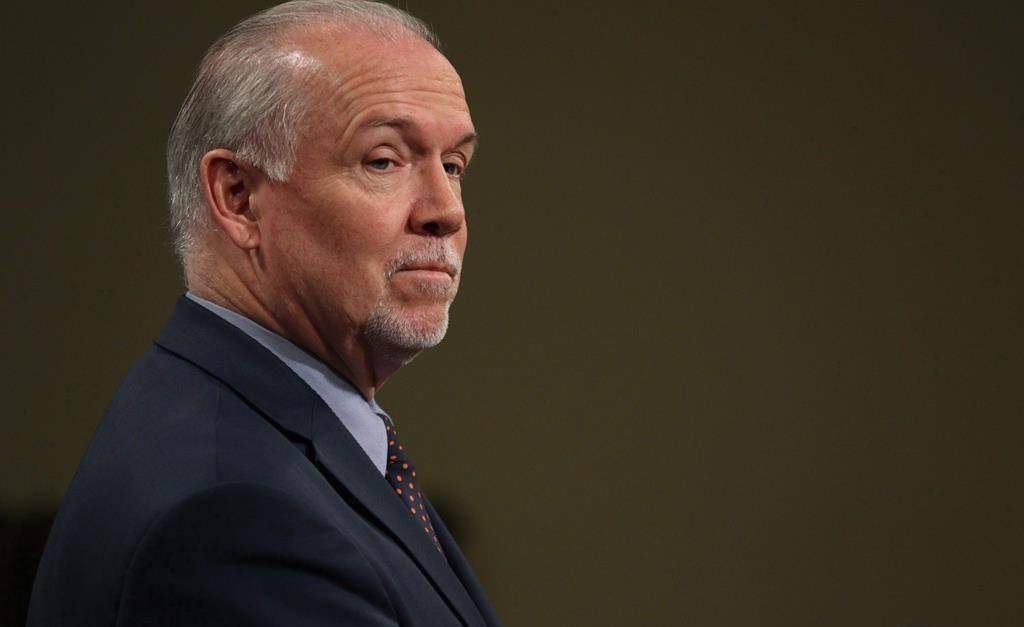For the first time since it took power in 2017, the NDP government can see economic storm clouds gathering on the horizon.

And, ironically, the predicted slowdown is largely attributed to some key — yet controversial — taxation measures the NDP has introduced into law.
Last week, two financial institutions released economic analyses that both zeroed in on B.C.’s economy, and both projected it will slow down significantly because of the cooling of the province’s real estate market.
Central 1 Credit Union concluded the province’s economy will, in fact, have three years of weak economic growth after several years of robust annual growth of more than three per cent GDP.
Its deputy chief economist, Bryan Yu, said in a news release that “economic growth is being held hostage by the housing market slump, which is deeper than previously forecast.”
As a result, Central 1 is now forecasting the provincial economy will grow by just 2.2 per cent in the coming year, then 2.4 per cent in 2020 and 2.8 per cent in 2021.
Yu’s report predicted “a substantial rebound (in home sales) is not expected. This downturn will be modest compared to previous episodes, reflecting a policy-induced downturn, rather than economic-recession induced downturn.”
Meanwhile, TD Economics had a more pessimistic assessment, projecting B.C.’s economic growth to be just 1.4 per cent this year and two per cent next year. Again, the chief villain is the slumping real estate sector.

Get breaking National news
“B.C.’s deepening housing market slowdown is likely to put a larger damper on growth this year,” it said in its provincial economic forecast. “The province’s housing market has been the most hard-hit by the implementation of tighter rules, rising interest rates and B.C. government policy measures.”
WATCH: Housing market downturn threatens B.C. economy

To be sure, neither of these projected scenarios constitute being anything close to a recession, but this may still spell bad news for the government’s three-year fiscal plan. The lower the economic growth rate, the fewer tax dollars are available for collection, and that plan projects an increase of almost $4.5 billion in tax revenue over that period.
To her credit, Finance Minister Carole James has taken a prudent approach to financial planning, and I have noted in this space before that she has built into her budgets enough elbow room to withstand some poorer-than-expected revenue estimates.
Still, what’s disappointing about this situation is that measures such as the speculation tax, the increase in the foreign buyers tax and the higher tax on high-end homes was supposed to make housing — both at the ownership and tenancy level — more affordable.
Instead, for now anyways, while house prices have dropped they have not dropped to the point of making homes actually affordable for most folks. A house that drops in price from $3 million to $2 million can hardly be viewed as becoming suddenly affordable.
And rents haven’t declined much, either, and remain unattainable for many. So it now looks like the government’s housing policies (which do not place much emphasis on increasing the supply of housing) are not only not meeting the affordability targets, but are instead having the biggest impact at slowing down the provincial economy.
Now, none of this may come back to haunt the NDP government. Both financial institutions are predicting employment levels will remain high (the government’s infrastructure program is considered to be providing a cushion to any economic slowdown).
WATCH: B.C. Budget 2019: Increase disability and welfare assistance

As well, TD Economics predicts B.C. finances will still lead the country and points out the massive LNG Canada project will provide a boost to economic growth to partially offset the slumping housing sector. And Central 1’s Yu says continued “moderate population growth” will also help.
As well, the B.C. Liberals continue to struggle to find their identity as an Opposition party and party leader Andrew Wilkinson has had a bad run of foot-in-mouth-itis in recent days.
However, the economic storm clouds are indeed gathering. After experiencing relatively sunny days during their first 20 months in office, things may be about to get a little darker for the NDP government.








Comments